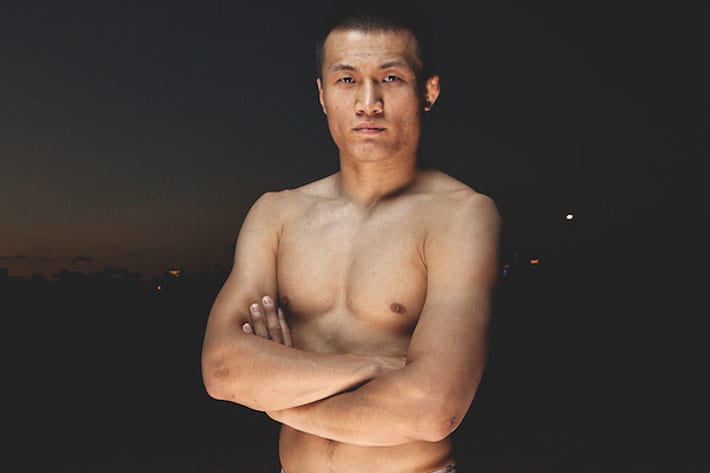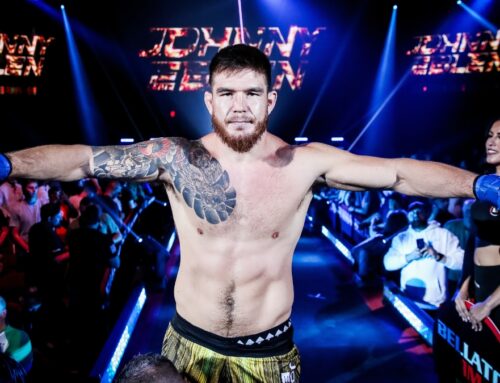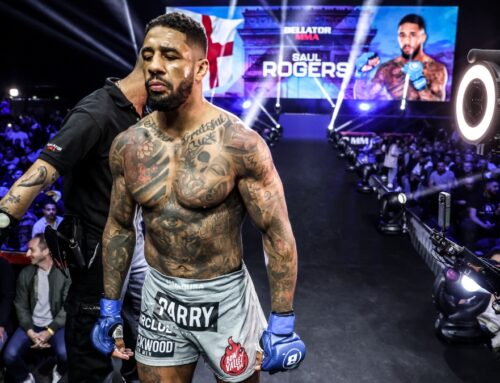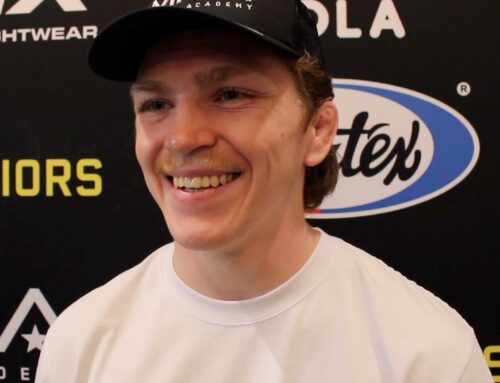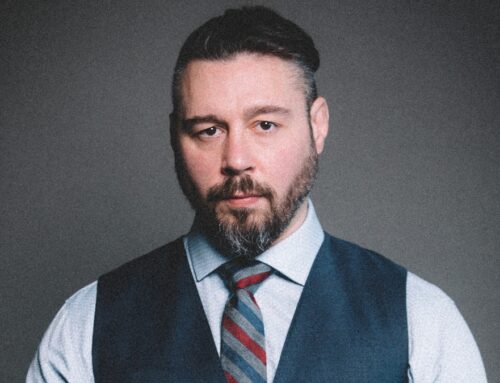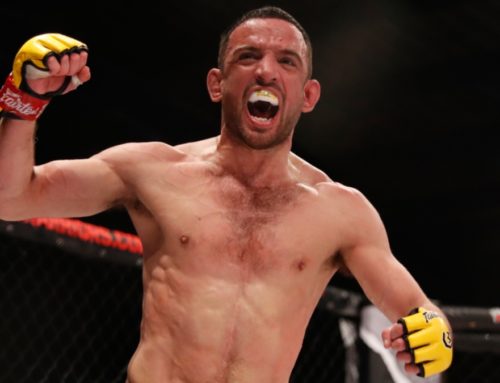Tony Reid caught up with Korean Zombie Chan Sung Jung.
Q. Is your goal ultimately still to be the first Asian UFC champion?
A. I don’t want to look past Dennis Bermudez. That would be foolish and disrespectful to him. But, ideally speaking, if I were to win against him, I’d like to think that a win over a top five opponent would put me back in title contention. With the current state of the featherweight division, it’s hard to tell what’s going to happen, but that’s my ideal scenario.
Q. You’ve said you’re returning to the Octagon an old man. Is that physically, mentally or both?
A. In Korea, they consider someone who is 30 old for a fighter. For me, having my own gym; two young daughters; fighters that I train; in a way I guess I feel more mature. Physically, I feel great. The time off was a blessing in disguise for me, physically.
Q. Have you spent your entire camp at home, training with your own team?
A. No. When I can, I like to see how other teams and fighters train. I like to see if there is anything that I can learn from them. I trained at Team Alpha Male in Sacramento before my second fight with Leonard Garcia. This past November, I spent a month training at the MMA Lab, and then I spent 10 days there right before fight week.
Benson Henderson is a good friend of mine and the team there is great. They have a lot of high level fighters and coach John Crouch is great. A lot of what the American teams do is good for a fighter’s longevity.
Q. How has becoming a father impacted on your training schedule and the rest of your life?
A. Obviously, having kids makes things harder. It’s that much more rewarding, of course. With two young daughters, I have to think about their futures, and not just my own. Even though it’s draining sometimes, having kids is amazing. I wouldn’t trade that for the world.
Q. Your three-and-a-half year layoff was due in large part to your mandatory military obligations. What did your training regimen look like?
A. I completed my government service in mid-October, so I had plenty of time to get back in shape and do a full camp. While I was doing my service, I didn’t have to train too intensely, so I really worked on sharpening my skills and developing new aspects to my game.
Q. What are your thoughts on the current state of the featherweight division and the impact Conor McGregor had on the weight class in your absence?
A. I like Conor McGregor as a fighter. I don’t know him personally, so I can’t comment on that, but he does what he does very well. He got the fights that he wanted, he became a two-division champ and has made a lot of money. I really wanted to fight him, but since he’s moved to lightweight, I don’t think that will be happening. So, now I’m focused on the fighters in my division. It looks like Aldo might move up to fight Conor, so the featherweight division might be wide open again.
Q. How is the word zombie viewed in Korean culture?
A. People understand what it means. >The Walking Dead< [AMC’s zombie TV show] is very popular at home in Korea and so are zombie movies. People understand what it’s all about.
Q. Do you find it funny to be called ‘The Zombie?’
A. Yeah. I think it’s kind of fun and I enjoy it. In fact, when people call me ‘The Zombie,’ I actually kind of like it. More than when people call me by my real name [laughs].
Q. Do you remember who it was who first called you it?
A. I don’t remember exactly who it was who called me The Zombie, but it started with our team [Korean Top Team]. Our team spar very, very hard and our coaches and the team started calling me The Zombie, because I kept on moving forward. I wouldn’t be knocked down and I couldn’t be stopped.
When it became time for me to make my debut as a professional, I was given a form where I would write down my nickname. It was just natural for me to go with The Zombie as everyone at the gym called me that all the time anyway.
Q. When did it become The Korean Zombie?
A. The first time I fought in Sengouku, the announcer called me The Korean Zombie, and up until that time, I’d only been referred too as The Zombie. They didn’t say, ‘Hey, can we call you The Korean Zombie?’ When the announcer said it, that was the first time the nickname was ever used. Now it has stuck.

